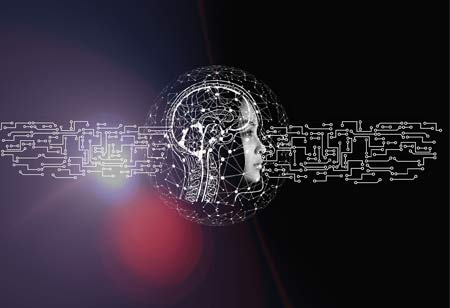THANK YOU FOR SUBSCRIBING
Be first to read the latest tech news, Industry Leader's Insights, and CIO interviews of medium and large enterprises exclusively from Education Technology Insights
AI in Online Education
During the pandemic, artificial intelligence has played a crucial role in education and had a remarkable effect on children around the world.

By
Education Technology Insights | Tuesday, May 09, 2023
Stay ahead of the industry with exclusive feature stories on the top companies, expert insights and the latest news delivered straight to your inbox. Subscribe today.
Artificial intelligence (AI) technologies provide efficient assistance for online learning and teaching, automating mundane tasks for instructors and enabling adaptive evaluations.
FREMONT, CA: During the pandemic, artificial intelligence has played a crucial role in education and had a remarkable effect on children around the world. In several states, there have been extensive, potential and prompt changes to traditional learning and teaching modes with strict social distancing measures and school closures. To ensure sustainability, higher quality, and flexible learning and teaching, countries have quickly shifted to online and distant learning to minimise educational disruption globally.
The number of organisations embracing AI continues to grow globally, considering the fact that it aims at stimulating human intelligence processes, and its main focus is to optimise regular procedures, improving their operational speed and efficiency. The global adoption of educational technologies is altering how humans teach and learn. Artificial intelligence is one of those innovative methods for personalising the experiences of different learning classes, teachers, and tutors.
By building a personalised study program for each student, AI helps in regulating what a student does and does not understand. To accomplish this, many organisations train their AIs to define and reflect knowledge gaps while taking into account the complexities of scientific theories' connections with one another. Given the complexities of the connections between scientific theories, many organisations train their AIs to define and reflect the knowledge.
Simplifying administrative tasks, a teacher might use AI to speed up the time-consuming process of evaluating, grading, and responding to students. Giving some routine jobs to AI frees up time for teachers to focus on more important tasks, such as assessing assignments that are challenging for students to grade themselves or improving the quality of the classes.
While talking about the benefit of AI, it provides 24/7 access to learning. Students need to be connected to a particular location to be able to plan their day. They can build their schedule according to their productive hours and study at any time from anywhere.
Individualised programs, customised jobs, interaction with automated technologies, and personalised recommendations are all part of their approach to each student. In any case, a personalised approach makes students feel special, increasing their engagement and interest in their studies.
Students can prevent comparing lessons by having them made specifically for the requirements of various learning classes. Before class, a student ought to seek help from the teacher. Nowadays, all it takes is to put a question into a personal digital assistant to get a prompt response. These changes that AI tools offer put personal progress in the spotlight and lessen the burden in the classroom. Reduced stress and increased excitement for studying result from a lower pressure.
Along with these benefits, AI technology opens up new mechanisms of interaction for students with learning disabilities, providing access to education for students who are deaf, visually impaired, and people with ASD. To assist any group of people with undivided attention, AI tools can be successfully trained.







